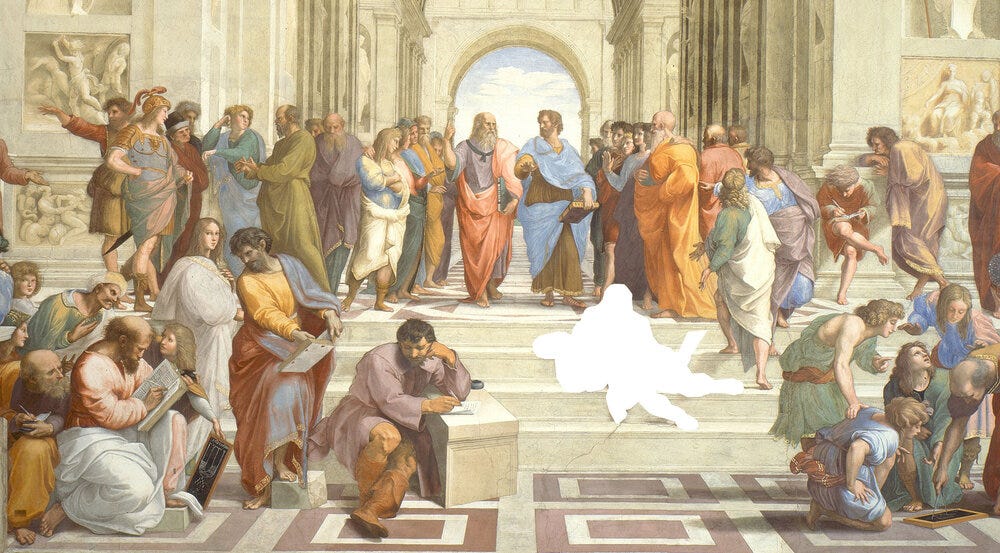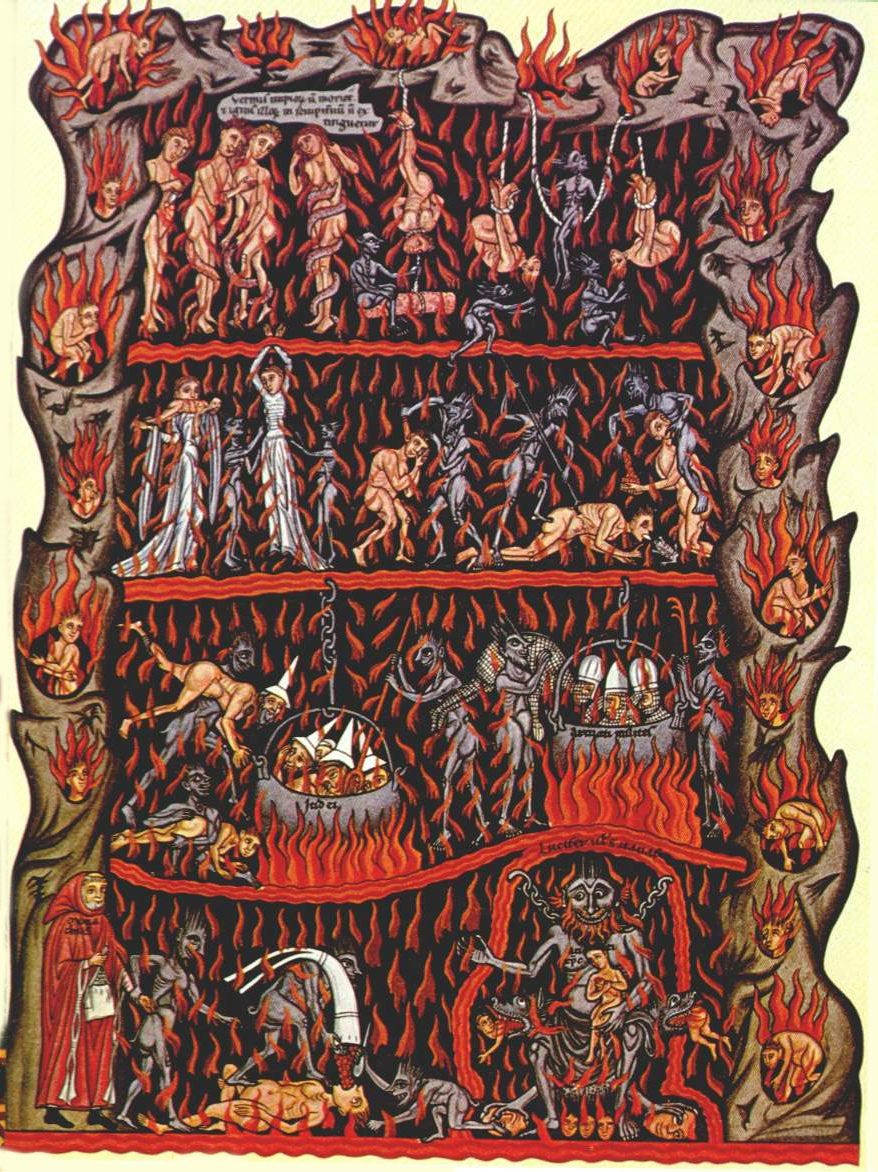A common notion is that to be a good writer, or a good thinker, you must read a lot. Stephen King says as much when giving writing advice. With all due respect, I wish to challenge this claim.
Have you read more than 10 books? If yes, then…
You’ve read more than Socrates (he wrote nothing)
You’ve read more than Plato
You’ve read more than Aristotle
You’ve read more than the other Ancient Greek philosophers.
There’s untranslated material from Thomas Aquinas. He wrote around 75K+ pages of material. Aquinas really only had access to the writings of some Aristotle, some Plato, and The Bible.
You’ve read more than Thomas Aquinas.
You’ve read more than most medieval philosophers.
Brief tangent. Speaking of medieval books, since those were written by hand, they were both rare and expensive. As such, they were prime targets for thieves. Those who were fortunate to access a book, often painstakingly put “book curses” on them for anyone who dared steal it. Here’s an example of a “book curse” depicting what would supposedly happen to a book thief:
Have you read more than 20-30 books? If you have…
You’ve read more than most Early Modern philosophers (Descartes, Spinoza, Leibniz, Malebrache, Locke, Hume, Berkeley, etc)
Descartes was fairly affluent, and therefore had access to more books, but he was a notorious non-reader. Hell, this motherfucker notoriously slept till noon. Queen Christina summoned him to give her lessons at 5AM. He died of pneumonia not long after (probably from getting up so early—but I digress).
You’ve probably read more than Descartes (considered—rightly or wrongly—the father of modern philosophy).
I could go on and on. But I think you get the point. These are pinnacles of intellectual thought. These men penned books we still read, and study. While one can make the case some of their material is dry and boring, and perhaps not well written by our standards, one would be hard pressed to say they are bad writers for their time (though I’ll never forgive Robert Boyle for his page long sentences—but that’s a personal gripe). And regardless of their views, their impact on philosophical thought cannot be overstated.
We can also observe that throughout most of human history, only a small minority of people were literate. And even with the printing press, books were difficult to come by.
(As as another brief side note, and this strikes at the heart of intellectual snobbery I sometimes see: it wasn’t uncommon in the 1800s for blacksmiths to employ a young boy to read him books while working. There’s a long tradition of blue collar intellectualism.)
But let’s go back and state an obvious, but overlooked, truth: there was a time when there were no books. Then there was a time when books came into existence. Yet we get marvelous poetry from the presocratic philosophers, as well as the classic works of Homer (all of whom had literarily impoverished).
Pointing to history reveals it’s not a requirement to consume hundreds or thousands of books to be a good writer or thinker. If you think it is, how are Greek tragedies so good? Why are The Iliad and The Odyssey masterpieces?
Why am I droning on and on about this? Because it’s not a matter of the quantity of books you read, but rather the quality and intensity by which you read what’s given to you.
Let me ask this. What’s better: you read 100 books a year, and forget most of what you read? Or, you read 2-3 books a year, and study those books with such intensity and to such a degree that you’ve mastered the material within? Which is more valuable?
I once had a graduate seminar on Leibniz’s metaphysics. Some sessions we’d spend three hours teasing apart a single paragraph. Or a single sentence. I think by the end, we’d only read 2-3 pages total. But goddamn did I know those three pages well. And my understanding of those pages formed the foundation for better understanding Leibniz’s work as a whole.
None of what I’m saying is intended to persuade you to read less. If your bag is burning through, say, 10 books a month? Great. Even better if you’re lucky enough to retain, synthesize, and critically evaluate each (Malcom X is said to have spent years in prison just reading books, and he seems to have retained a lot—there are exceptions). If you’re one of those rare people who can absorb hundreds of books, more power to you. Hell, this is what Robert Greene does. But even he admits to sometimes spending months on just a paragraph of a piece of work.
My only point is this: you don’t have to read a lot to be a great writer or great thinker. Yes, it can help. The key word is can. However, and this is key, you do have to dig deep into the nitty gritty of the texts you do read. You can’t read books like you watch movies.
They must command your focus. Reading isn’t a spectator sport.
There’s also a danger in reading too much. Here’s a quote by Schopenhauer:
And so it happens that the person who reads a great deal—that is to say, almost the whole day, and recreates himself by spending the intervals in thoughtless diversion, gradually loses the ability to think for himself; just as a man who is always riding at last forgets how to walk. Such, however, is the case with many men of learning: they have read themselves stupid. For to read in every spare moment, and to read constantly, is more paralyzing to the mind than constant manual work, which, at any rate, allows one to follow one's own thoughts
From: Did Schopenhauer Think Reading is Bad for You? (yes, sort of)
There’s something to be said for reading too much leading to a lack of original thought. Not always, of course, but the temptation is present. You’re spending too much time in someone else’s mind, and not enough digging deep within yourself.
My suggestion, for what it’s worth, is that if you’re an avid reader, maybe slow down, and think about what you’re reading. I mean really think about the books you’re reading. As George Carlin once said: it’s not important that kids learn to read, but learn to question what they read.
To end, are you someone who reads, but feels like you don’t read enough? Like I said, you’ve read more than Plato. And again, it’s not THAT you read, but HOW you read.



I'm a voracious reader, so I'd add a caveat: it depends what you read. I've been poring over Gabriel Byrne's memoir "Walking with Ghosts" for months now - it's a slim book, gloriously written. I read a few pages, then go back to the beginning and read again. I think I don't want to finish it. I must have read the first few pages of Tana French's "The Likeness" at least twenty times. The writing blew my mind, it also made me want to write something that beautiful (getting there!). On the other hand, I'm in the middle of an Elmore Leonard no and I'm tearing through it because I enjoy it so much. It's like movies, not everything is Last Year at Marienbad. A Raiders of the Lost Ark brings joy to the senses. As with everything, it's all about mixing it up.